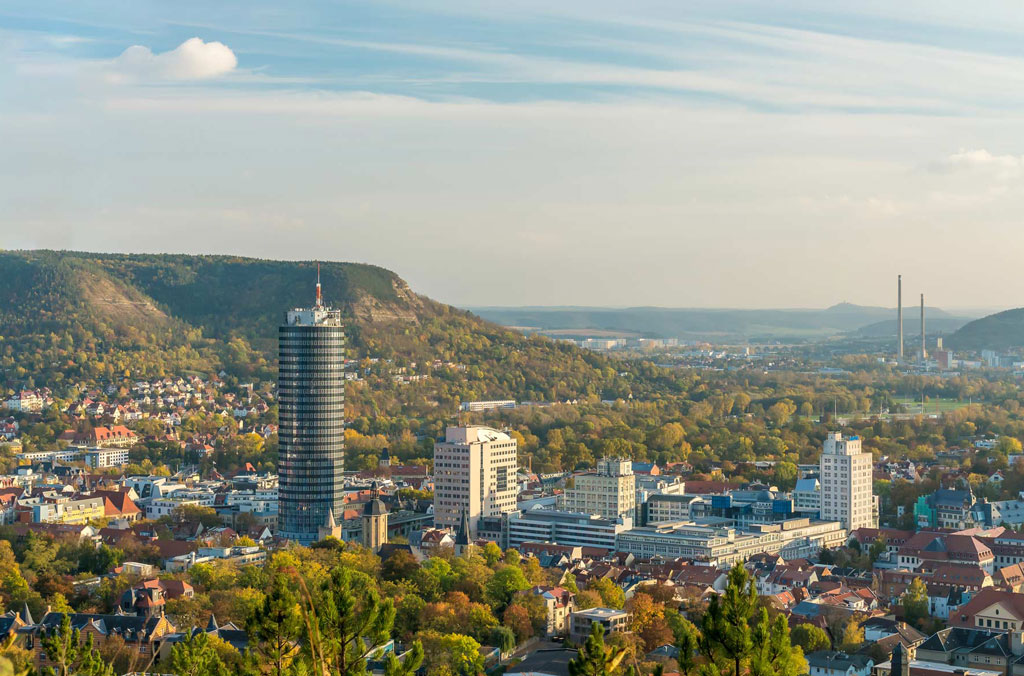From September 25 to 28, the Fraunhofer-Institute for Applied Optics and Precision Engineering IOF, the European Optical Society and the Japan Society of Applied Physics are jointly inviting participants to the "27th Microoptics Conference" (MOC 2022 for short). The latest results, applications, and challenges in the field of microoptics will be discussed with international guests.
This is the second time that the traditional optics location has had the honor of hosting the international conference: In 2004, Jena had already been selected as the venue for the event at the suggestion of the Japanese Society for Applied Physics. In 2020, the conference was to be held again in the city on the river Saale. However, the event had to be postponed due to the COVID-19 pandemic.
Micro-optics for the automotive sector and quantum technologies
In addition to contributions on basic micro- and nano-optical research, the lectures and workshops at MOC 2022 will also cover a wide spectrum of concrete application areas – ranging from new design and manufacturing processes for micro-optical components to application-ready optical systems in the fields of communications, lighting, and quantum systems. Other contributions to the conference will deal with micro-optics for measurement methods and sensor technology as well as for dynamic and functional components such as MEMS, switches, or modulators. Researchers of Fraunhofer IOF will present their pooled expertise in the production of efficient and compact micro-optics for the automotive sector at the conference. The automotive sector benefits in particular from miniaturized optics, as the demands on light output and functionality are particularly high in this field. In addition to strictly defined dimensions, it is primarily requirements for improving the energy balance in the vehicle that define acceptance for the use of optical systems in cars. The experts from Jena have thus succeeded in overcoming the limitations of established optical technologies for automotive headlights and significantly improving them in terms of miniaturization, efficiency, and design. Various array projection approaches and the associated manufacturing technologies will be presented.
Furthermore, potential applications of micro-optics in miniaturized quantum systems will be presented. At Fraunhofer IOF, for example, a space-qualified source for the generation of entangled photons has been developed in recent years. In the future, it is going to enable highly secure communication by means of light particles, e.g., for authorities or critical infrastructure. Furthermore, researchers from Jena are working on optical systems to support quantum computers as well as new imaging methods using quantum know-how. The conference will continue to be accompanied by an industrial exhibition. In addition, there will be opportunities to expand one's own network, for example at a conference dinner at the Zeiss Planetarium Jena.
Guests from Europe, Japan and the USA expected in Jena
The “Microoptics Conference” is held annually in Japan and other countries. It is coordinated by the Microoptics Group of the Japan Society of Applied Physics. For many years, the conference has been attracting large numbers of visitors and has become a central forum for microoptics. Most recently, around 200 scientists from all over the world took part in the three-day, internationally renowned event. Guests are expected from Japan, the USA, and many European countries. The format will be implemented as a hybrid event. Participation is possible both on-site in Jena and digitally. The event language is English.
